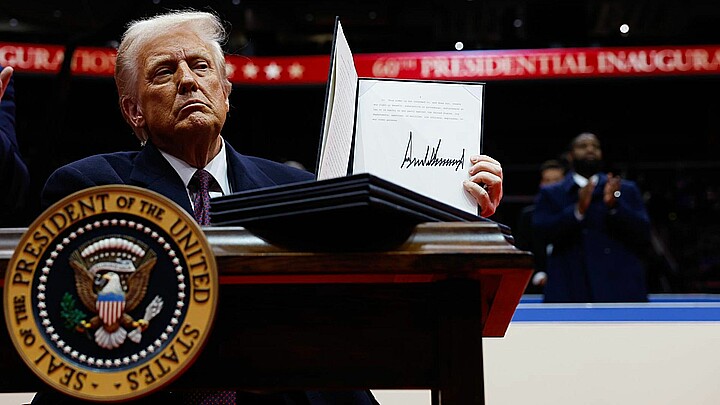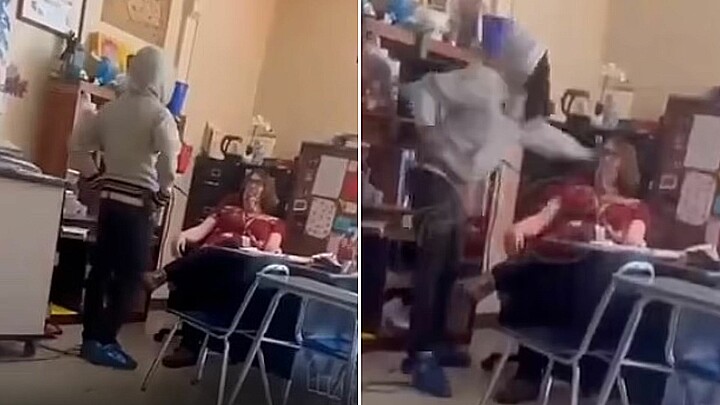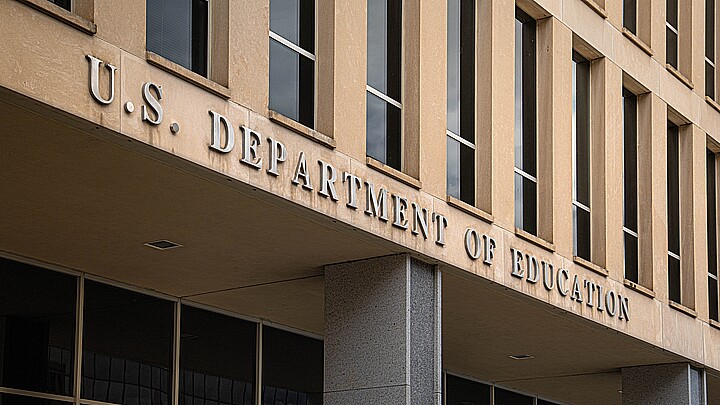Education
Professors who challenged George Floyd orthodoxy face surprise termination, reinstatement
Arbitrator sides with University of Central Florida's Charles Negy after his termination, while Princeton's Joshua Katz finds himself a victim of double jeopardy
May 23, 2022 10:56pm
Updated: May 24, 2022 12:10pm
Two long-tenured and highly decorated professors poked progressive sensibilities on race after George Floyd's death in 2020. One got fired, while the other thought he had weathered the storm.
Charles Negy and Joshua Katz have now traded places, with an arbitrator ordering the University of Central Florida to reinstate Negy with tenure and give him full back pay, while Princeton University fired Katz Monday.
Negy said "Black privilege is real" because of affirmative action and "being shielded from legitimate criticism," and he asked whether the concept of "systematic racism" would be popular if blacks as a group "had the same behavioral profile as Asian Americans."
UCF administrators responded by publicly soliciting accusations against the psychologist, and protesters mobbed his home. Though he deleted the tweets "in a panic," Negy told The New York Times he now regretted the deletions.
Negy's January 2021 termination letter accused him of "repeatedly" creating a hostile learning environment, dissuading students from filing complaints against him, failing to report a student's sexual assault accusation against his assistant, and providing false information during the resulting investigation. GoFundMe also deleted his legal fundraiser.
UCF's faculty union defended Negy in four days of arbitration hearings under the collective bargaining agreement.
The university "cherry-picked" a "handful of constitutionally protected but arguably provocative comments" over 15 years to portray his classroom as a hostile environment, Negy testified. He said attempts to "inject humor into my lectures" had "landed poorly" with some students, according to last week's opinion and award letter by arbitrator Ben Falcigno.
The administration undertook an "extensive search into antiquity of reasons to castigate" Negy, Falcigno wrote, questioning its practice of interviewing students and then sharing summaries with Negy even when students hadn't signed off on those summaries.
The professor didn't have a single negative evaluation before the kerfuffle, receiving the Teaching Incentive Program award three times, "overall outstanding" evaluations for the past five years, and an unscheduled salary bump to keep him from leaving UCF, Falcigno wrote.
Negy taught "highly emotion-laden courses that the employer has evaluated consistently as about as good as it gets" over 20 years, and UCF rewarded him with "capital punishment," the letter says. The university cannot "claim it made enormous evaluations errors for 20-plus years and then castigate the employee with termination."
It's the second speech-related setback for UCF in less than a month. A federal appeals court blocked its "discriminatory harassment" policy and ordered a new review of its bias response team on First Amendment grounds.
"The purpose of the university is not to make people feel comfortable," Negy told Fox 35 Orlando, which reported he plans to return to campus this fall and sue the university. "This is not a church. This is not a social gathering."
His lawyer Samantha Harris told the Times the decision was "a powerful rebuke of the 'show me the man, I'll find you the crime' treatment that frightens so many people into silence."
UCF spokesperson Chad Binette said the university supports academic freedom and First Amendment rights, but "faculty and staff members have a responsibility to not impose their personal beliefs on students." While it stands by its Negy investigation, UCF is "obligated to follow the arbitrator's ruling," he added.
Princeton's board of trustees approved President Christopher Eisgruber's recommendation to terminate Katz "effective immediately," the university told The Daily Princetonian. The board includes Yale Law School Dean Heather Gerken, whose recent reappointment was threatened by speech-related controversies.
Katz's wife said they learned the news from a New York Times reporter. "It's pretty damning that we don't have [the university statement] ourselves," said Solveig Gold, a senior research assistant in Princeton's James Madison Program, which hosted an event last week on "the fight for free speech at Princeton and beyond."
Katz put a target on his back by criticizing hundreds of colleagues for racial demands, including an official apology to the Black Justice League, a defunct campus activist group he called a "small terrorist organization."
The classics professor defended the "terrorist" wording by accusing BJL of using "fear tactics to intimidate fellow students who attempted to debate them in good faith," including "verbally vilifying" a black student "in public at every possible opportunity."
The university later included him in a virtual gallery on Princeton's history of "systemic racism" that was featured in freshman orientation, removing the phrase "many black students" from Katz's quote about BJL's victims.
While Eisgruber soon walked back his threat to investigate Katz, the controversy led The Daily to investigate Katz's unexplained 2018-2019 absence from campus. Several alumni claimed he had "a romantic relationship" with an "undergraduate advisee" in the mid-2000s, which Katz publicly acknowledged last fall.
Princeton had already suspended him without pay for that relationship, but it opened two new investigations following outrage about the newspaper's report, according to the Washington Free Beacon, which said the Title IX review cleared him of sexual harassment charges.
Faculty Dean Gene Jarrett's review, however, found Katz "didn't cooperate fully with and misled investigators" the first time and discouraged the romantic partner from "seeking psychiatric help when she threatened self-harm," The Wall Street Journal reported — the basis for Eisgruber's recommended termination.
Interviewed by the Journal, Samantha Harris, who is representing Katz as well as Negy, warned of a chilling effect from the intrusive Katz investigations. "If expressing an unpopular opinion is an invitation to have your personal life turned inside out looking for damaging evidence, how many people are going to be willing to speak out?" she said.
Princeton's statement emphasized it had not subjected Katz to double jeopardy. It said his long-ago romantic partner, who didn't cooperate with the 2018 proceeding, last year provided information "unknown" to Princeton when it first suspended him for a year.
Free speech groups, including the Princeton-based Academic Freedom Alliance and alumni group Princetonians for Free Speech, have risen to the defense of Katz in recent months.
"Today the mob at Princeton got its man," PFS said Monday night. "From the day Professor Katz wrote his article" in Quillette criticizing colleagues, "the mob of faculty, the student newspaper, and Princeton administrators was determined to have him punished" and "unleashed an unprecedented investigation into his personal life" when that process was too slow.
A group of faculty led by math professor Sergiu Klainerman filed a complaint last fall about Katz's inclusion in the "systemic racism" virtual gallery, Klainerman wrote in Tablet last month.
He said Vice Provost for Institutional Equity and Diversity Michele Minter told him the gallery was not an "official university document" and Katz's views are not a "protected characteristic."










